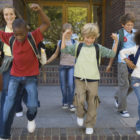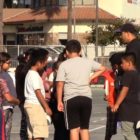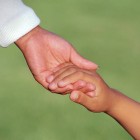
The Afterschool Alliance recently released a new study evaluating the financial security of afterschool programs, finding that more than 60 percent of respondents reported a downturn in funding over the last three years. Uncertain Times 2012: Afterschool Programs Still Struggling in Today’s Economy also finds that almost two out of every five programs reported having budgets that were “in worse shape” now than in 2008. Researchers say that funding issues are particularly severe for afterschool programs that predominantly serve Latino and African-American children, where almost 90 percent of children enrolled in such services also qualify for reduced-price lunch programs.
According to researchers, 68 percent of afterschool programs predominantly serving African-American children and 65 percent of programs serving predominantly Latino children reported reduced funding since 2009. Researchers report that roughly 70 percent of African-American majority programs state that their current budgets cannot sufficiently meet student and community needs, while 62 percent of Latino majority programs state that their budgets cannot fulfill the needs of children enrolled in such services. Additionally, 92 percent of predominantly Latino afterschool programs reported that children in the local community required afterschool care, but could not access it.








